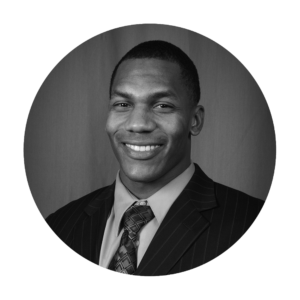 by Phillip Nevels, Associate Partner of Strategic Initiatives, Postsecondary at Catalyst:Ed
by Phillip Nevels, Associate Partner of Strategic Initiatives, Postsecondary at Catalyst:Ed
Post-secondary Associate Partner Phillip Nevels reflects on the equity considerations that the Strategic Initiatives team grappled with when recruiting and selecting postsecondary providers to the Catalyst:Ed network, and their implications for Catalyst:Ed, our work, and for the broader postsecondary sector.
Catalyst:Ed serves as the backbone and facilitator for the Bill & Melinda Gates Foundation’s Intermediaries for Scale (IFS) Initiative. One of our roles is to support grantees in building internal capacity through high priority, high impact consulting engagements. To advance this work, Catalyst:Ed needed to deepen its bench of expert postsecondary professional service providers (providers) who can offer critical support to the Gates grantees.
We did this through a national recruitment process inviting providers, both individuals and teams, that had the strengths and skill-sets to 1) grow the capacity of intermediaries, 2) further the goals of the Intermediaries for Scale strategy portfolio, 3) expand the postsecondary sector’s knowledge of providers who are currently doing this work, and 4) identify gaps in the market, if they exist. For more information about our recruitment process and approach to expanding our postsecondary work, check out our previous post, Going to College: Expanding our Work to Support Postsecondary Institutions.
As I reflected on this process and approach, a few notable data points became discernible, raising important questions about equity, race, and representation in postsecondary education. Additionally, this process raised a most fundamental question regarding who is responsible for addressing these issues of inequity in the postsecondary sector. Notwithstanding, some specific questions raised about equity, race, and representation during the postsecondary provider selection process include;
- Why was there an under-representation of BIPOC individuals that applied to be providers during the selection process, and how might race and identity inform a provider’s approach?
One reasonable explanation for the under-representation of BIPOC individuals is the historical exclusion of BIPOC communities in the postsecondary ecosystem, especially as consultants. During the selection process, we observed that many BIPOC individuals, even if they had comparable credentials and experiences, were significantly less likely to view themselves as “experts,” and wanted to talk with Catalyst:Ed before applying to ensure this opportunity was a good fit.
- How did postsecondary providers define equity, and how do providers see their role in addressing inequity in the postsecondary sector?
A significant number of applicants found it challenging to define equity, the role of race and systemic racism in higher education, and how their understanding of race, privilege, class, and justice shows up in their work. During interviews, we asked: “What is your working definition of equity?” The responses varied widely, both in content and specificity – even though most applicants indicated that equity was at the center of their work. A common answer from consultants with weaker responses to equity related questions was, “We do not yet have a working definition for equity…we are still on our equity journey.” A common answer from consultants with stronger responses was, “We first ask clients to look at the disaggregated data by race, we ask what can the institution do better instead of blaming the student, and we consider who is not at the table in making decisions about students and vulnerable populations served by our client.”
Overall, this process revealed several critical lessons that are the byproducts of systemic inequalities and privilege that plague the nation’s education institutions–and are unduly evident in higher education. And I know that there are many other examples. The under-representation of BIPOC individuals applying to be network providers and how they see their role in addressing inequity in the postsecondary sector are merely manifestations of this history, exemplified through Catalyst:Ed’s network recruitment and provider selection process.
More broadly, Catalyst:Ed is actively examining and seeking to address these questions. Our vision is a marketplace that centers equity, justice, community, and collaboration and yet is still sustainable and innovative. More specifically, for the postsecondary sector, I propose four grounding questions that I believe push us closer to living into a more equitable marketplace:
- If we’re continually hiring the same people to do higher education consulting and capacity building for postsecondary organizations, do the opportunities for thoughtful, innovative solutions shrink because of the limitations on the cultural and racial–but also ideological–diversity of the field?
- If BIPOC lean on their experiences, while non-BIPOC lean on their networks – what are the standards by which we are making decisions about who is an expert? What is expertise in postsecondary education?
- Where does responsibility lie in developing expertise in the postsecondary field?
- What needs to happen to foster skills among an emerging postsecondary expert field? (To diversify the field, increase accessibility to consulting work, and infuse innovation)
We (Catalyst:Ed, higher education institutions, intermediaries, foundations, policymakers, and providers) are all responsible for addressing the questions above. If we do so with care, ownership, and intentionality, higher education and society can be much closer to living into the best version of itself. A present and future where Equity, Diversity, Inclusion, and Justice are at the forefront of student success. A present and future where institutions are more innovative and transformative when Equity, Diversity, Inclusion, and Justice is their standard, not their exception.
